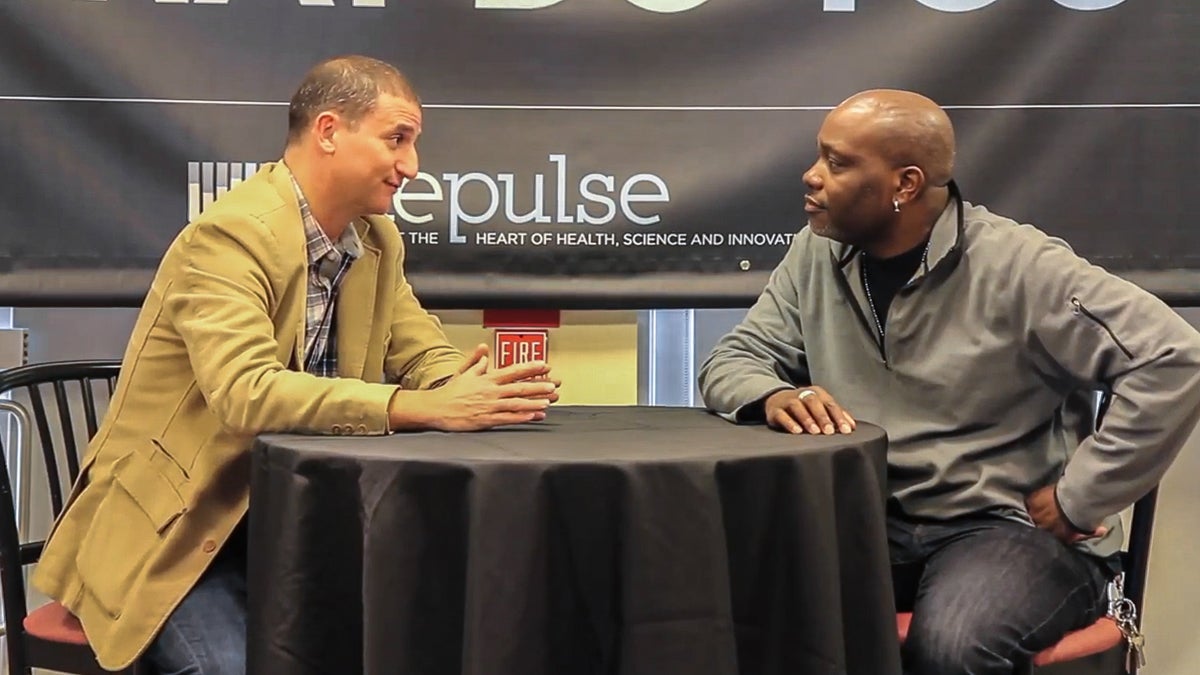Analyzing genetics, race from a scientific perspective

(Kimberly Paynter/for WHYY)
How much of who we are is determined by our DNA? Is our DNA a predictor of behavior? How do our genes evolve over time?
While scientists begin to answer a few of those important questions, many of them remain unsolved.
Just as the completion of the Human Genome Project wound down in 2003, Michael Yudell, the Chair and Associate Professor in the Dornsife School of Public Health at Drexel University, was fresh off a release of the book “Welcome to the Genome.” He co-wrote the book alongside Rob Desalle and it was the direct result of some of the data and information gleaned from a nearly two-decades long gene mapping endeavor.
“I got to observe the evolution of this rapidly changing science,” said Yudell, who was featured in a special live version of “So, What Do You Do?,” recorded at WHYY’s studios.
Since the end of the Human Genome Project, there have been major breakthroughs in the understanding of what exactly our DNA can and can’t do, especially with regards to how external factors can impact DNA in the span of a single lifetime.
Today, much of Yudell’s work focuses on how genes relate to the topic of race in human diversity, and how the sociological implications affect how we behave. He spends a lot of his time thinking through questions about race from a scientific point of view.
“Much of the way that we think about race and ‘race difference’ has been shaped by how scientists conceptualize race,” said Yudell in a conversation with Len Webb, a graphic designer, illustrator and host of the Black Tribbles podcast.
To listen to that conversation, click on the video above.
Yudell released a book last year called, “Race Unmasked: Biology and Race in the 20th Century.”
WHYY is your source for fact-based, in-depth journalism and information. As a nonprofit organization, we rely on financial support from readers like you. Please give today.



